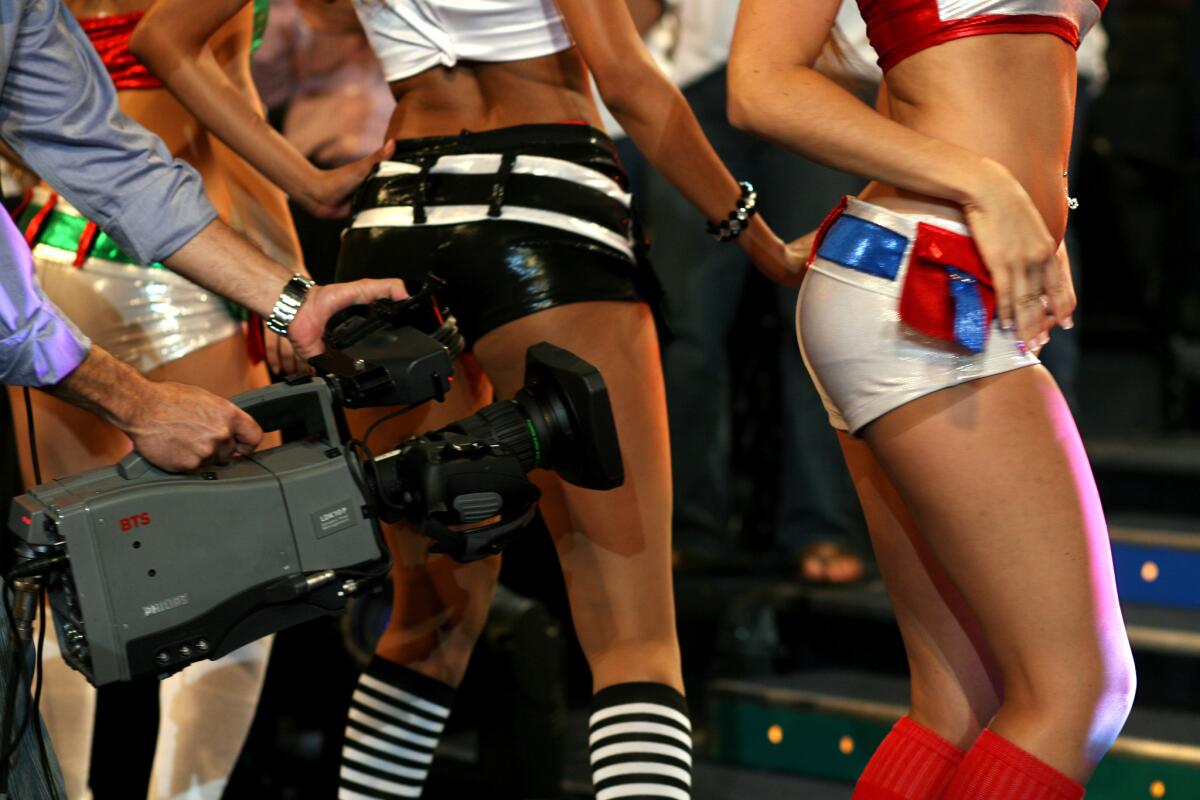‘Sábado Gigante’ has, for better and worse, defined Spanish-language TV

Some television shows are around so long that you assume that, like zombies and certain plastics, they simply cannot die. That was certainly the case for “Sábado Gigante,” the weekly Spanish-language variety show hosted by Chilean presenter Don Francisco that has been around in one form or another since John F. Kennedy was president. It has lived longer than the “Tonight Show with Johnny Carson” (30 years), “Saturday Night Live” (40 years) and “General Hospital” (52 years).
So, the announcement that the show would be retired come September has sent the Internet into a tailspin of CAPS LOCK EMOTING and exclamation point abuse. In the last 18 hours, I’ve seen perfectly rational adults post social media status updates that read: “NOOOOOOOO!!!!!!!!” and “I’m not sure I want to live in a world without Sábado Gigante.”
For more than half a century — the show has been on the air for 53 years — “Sábado Gigante” has been the face of Spanish-language television in the U.S. But over time, that face has felt increasingly like a caricature, in which every woman seems to be scantily clad and every man a horny buffoon.
That is not to say the program hasn’t historically had its merits as entertainment.
As far as television shows go, “Sábado Gigante” is a hypnotic chimera — as if Benny Hill, Ed Sullivan, Chuck Barris and Charo all got swept up in a tornado of magical realism and then deposited in a studio in Miami. The show, which airs every Saturday night without fail, contains celebrity interviews, game show elements, feature stories, interviews with adorably precocious kids, musical performances, lip-sync contests and talent shows.
These three hours of controlled chaos are guided by the avuncular Don Francisco (born Mario Kreutzberger), a host with a penchant for ribald wordplay and a habit of busting out into song — often the commercial jingle for one of the show’s sponsors.
One of the program’s most famous features was a long-running segment called “El Chacal de la Trompeta.” In it, a member of the audience would sing a song as Don Francisco bounced around in funny hats. If the performance went off the rails (which it frequently did), El Chacal — a comedian in an executioner’s costume — would play the trumpet. At that point, a guy in a lion costume would emerge from a cave to “devour” the contestant.
It’s so strange, it’s impossible not to watch. (Though, to be certain, it’s not out of place with other TV shows from Latin America and Spain, which regularly fuse the slapstick and the surreal.)
The show was a triumph for Kreutzberger, who first launched “Sábado Gigante” in Chile in 1962, before taking it to Miami and the Univision network in the mid-1980s. This is no small achievement. Within Latin America, Chile is not a powerful broadcasting center in the manner of Mexico, which exports programs all over the continent and beyond. It was sheer perseverance and hard work that transformed “Sábado Gigante” into an international phenomenon. (In its early days, it was eight hours long.)
In the U.S., the program has had a resonance that extends well beyond the Latino community. Over the years, Don Francisco’s guests have included the Obamas, Bill Gates, George W. Bush and John F. Kerry. In 2006, Rep. Ileana Ros-Lehtinen of Miami delivered a tribute to the presenter from the floor of the House. Don Francisco has danced “Gangnam Style” with Korean pop star Psy and been parodied by comedians including Fred Armisen and Stephen Colbert.
The program has practically come to define Spanish-language television in the United States.
That is a problem. “Sábado Gigante” began life as harmless, goofy puffery, with game show antics, interviews and performances, all bound by Don Francisco’s mildly off-color jokes. (The Chilean website Guioteca has some terrific early footage of the host in action, and it’s revelatory to see how loose and funny he could be when he was really engaged.)
But over the decades (and especially after landing in Miami), the show has ossified and descended to ever baser depths. In the comedy skits, the men get the best lines while the women get hot nurse outfits. For a time, the show held dance competitions called “Miss Colita” (“Miss Tail”), in which women in thong bikinis would shake their behinds on stage and everyone woud literally sit around and deconstruct the quality of their butt cheeks, with Don Francisco doing things like helpfully pointing out imperfections like bruises.
Every week, it seems, the show has found new and degrading ways of making their humble, working-class audience compete for cash prizes and the occasional car. Don Francisco went from being the cheeky and amenable uncle, to one whose comments continuously border on the uncomfortable.
In Latin America, “Sábado Gigante” resides amid a panoply of TV offerings that span the range from game shows to soaps to news hours to talk shows about literature. In fact, in Chile, where it was born, they no longer air it. But here in the U.S., where for the longest time, the only choice for Spanish-speakers was Univision or Telemundo (and more often than not, just Univision — which currently has 70% market share), “Sábado Gigante” has had an outsized presence.
When your choice of TV is pretty much one channel, you’ll watch whatever that one channel might send your way — regardless of whether it’s a steady diet of junk.
Not everyone will miss the program. Among the many contacts and friends who posted about it on Facebook, I saw many declarations that read, “FINALLY!” One friend said the show gave her the creeps. My Chilean mother (who doesn’t suffer fools gladly) declared: “it should have gone off the air 45 years ago.” And my Times colleague Hector Becerra wrote a good take about disliking it.
I’m certainly ready to bid the program goodbye. I’m fine with silly skits and indecorous jokes. But the steady diet of dumbness got exhausting. Let’s hope the brain trust at Univision replaces “Sábado Gigante” with something funnier, something wittier, something in which the women occasionally get to show something other than their bums.
Find me on Twitter @cmonstah.
More to Read
Sign up for Essential California
The most important California stories and recommendations in your inbox every morning.
You may occasionally receive promotional content from the Los Angeles Times.











